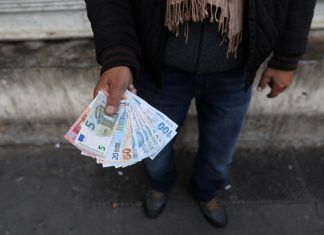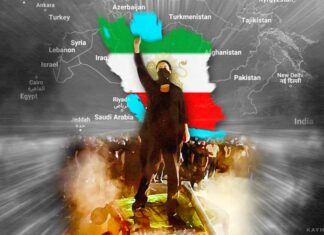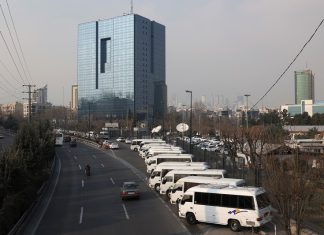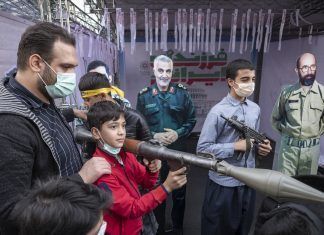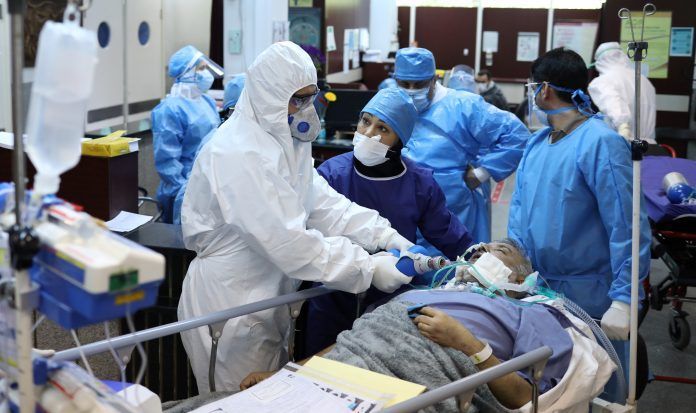
In a letter to the Iranian Minister of Health and Medical Sciences, Dr. Saeed Namaki, the director of the Nursing Organization of the Islamic Republic of Iran (INO), Dr. Mohammad Mirzabeigi, has urged the government to cancel the operating licenses of private hospitals that fired many of their nursing staff during the coronavirus epidemic.
“In recent days, several private hospitals have taken the unexpected and unusual step of firing many of their nurses,” Dr. Mirzabeigi said. “The measure is against the country’s best interest and harms our dedicated, selfless, and vulnerable nurses, particularly when the nation is in the middle of the coronavirus epidemic.”
“The Nursing Organization of the Islamic Republic urges you, as the country’s top health official, to open an immediate inquiry into the firing of our noble and dedicated nurses by these hospitals,” Dr. Mirzabeigi noted. “These hospitals have reaped the benefit of the invaluable healthcare provided by our nurses. They charge exorbitant fees for their services, generate massive revenue, and payout substantial dividends to their shareholders.”
“We expected them to support their staff not only for a few months but for a few years, given their healthy financial situation. To our shock and disbelief, they have instead fired many of their nursing staff two months after the coronavirus outbreak,” Dr. Mirzabeigi explained. “These nurses have spent their entire lives caring for other people, but are now sitting idle in their homes.”
“We urge you to cancel the operating license of any hospital that continues to dismiss members of its nursing staff,” Dr. Mirzabeigi added. “These hospitals should know that the country will not forget their disgraceful and cowardly actions.”
In comments reported by the Iranian Labor News Agency (ILNA) earlier this month, the representative for the Iranian Nurses Association, Mohammad Sharifi, lambasted private hospitals for reducing the number of their nursing staff as a cost-cutting measure and putting profit before people.
“Private hospitals have mistreated their nursing staff, who are at the forefront of the fight against coronavirus. Their behavior is utterly unacceptable, given that they constantly praise the selfless actions of these nurses who stay, round the clock, at the bedside of those affected by the virus.” Mr. Sharifi said. “Many of the nurses have been in their jobs for years, but now have to stay home. The government knows that it is next to impossible for any of these nurses, who worked in private hospitals for years if not decades, to find another job in the current climate.”
“There is also no job safety for nurses who have fixed-term contracts with public hospitals,” Sharifi noted. “There were no unemployed nurses or any on fixed-term contracts until the creation of the nursing department in the Ministry of Health and Medical Education. Hospitals had not been privatized yet. Fixed-term contract nursing did not exist until 2013.”
“The government has significantly increased the number of 89-day fixed-term contracts which has placed a great deal of pressure on nurses,” Sharifi explained. “These contracts do not provide insurance and benefits to nurses. Most university hospitals do not provide 90-day contracts to their nursing staff, which obligates them by law to pay workplace insurance and benefits.”
“To create a cheap labor force, private and state hospitals pushed for shortening the education and training periods for nurses and paramedics,” Sharifi said. “They offered a six-month certificate to high school graduates and a one-year paramedic training program. As a result, they doubled the number of nurses in five years. Some 60,000 nurses were certified during that period. That is 12,000 new nurses each year. Only 3,000 nurses were, however, hired last year. Even if they had hired 10,000 nurses, it still would have left the remaining 50,000 without jobs.”
“It makes absolutely no sense to fire nurses given they are at the forefront of the fight against coronavirus and are risking their lives every day to save others,” Sharifi added.
[aesop_image img=”https://kayhanlife.com/wp-content/uploads/2020/04/2020-03-30T161713Z_1813735472_RC2GUF9212GM_RTRMADP_3_HEALTH-CORONAVIRUS-IRAN-scaled.jpg” panorama=”off” credit=”REUTERS./” align=”center” lightbox=”off” captionsrc=”custom” caption=”Nurses wear protective suits, following the outbreak of the coronavirus disease (COVID-19), at Sasan Hospital, in Tehran, Iran March 30, 2020. ” captionposition=”left” revealfx=”off” overlay_revealfx=”off”]
During a press videoconference on April 10, the Deputy Health Minister Iraj Harirchi said the government could not intervene on behalf of nurses, who were at the risk of losing their jobs in private hospitals.
“All around the world, the private sector always focuses on its specific concerns,” Mr. Harirchi was quoted by ILNA as saying. “Private companies around the globe have scaled down their workforce. These actions must be in line with labor and welfare laws. We cannot take any specific measures in this situation. All we can do is to urge private hospitals to be more patient, compassionate, and understanding during these difficult times.”
In comments reported by the Iranian Students News Agency (ISNA) on Dec. 30, 2019, Iran’s Health Minister Dr. Namaki said: “Our nurses should possess many skills. They must be the most skilled and capable people in our healthcare system because they are the first point of contact for patients, particularly during the critical phase of an illness.”
“We have not previously thought of our nurses as people who could manage our healthcare system. Some of the most skilled people who can manage our healthcare system are our nurses,” Dr. Namaki pointed out. “The State Welfare Organization has paid us half of the $2.4 million it owed us. That has enabled us to pay some back salaries gradually. Our nurses are on top of the list, some of whom have worked without pay for 18 months.”
“I have always praised their characters and work during cabinet meetings,” Dr. Namaki added.
According to ILNA, there are between 7,000 to 8,000 full-time nurses working in private hospitals in Iran, which leaves the 30,000 who are on fixed-term contracts and have no job security in a precarious position.
The government’s policies seem to violate Article 43.2 of the Constitutions which states: “The economy of the Islamic Republic of Iran will be based on the providing the circumstances and opportunities for employment for everyone with the prospect of achieving full employment; making means of labor available to everyone who can work but does not have the means.”
In an undated video clip published on social media, the founder and current administrator of Atiyeh Hospital, Dr. Khalil Alizadeh, explained the reasons for reducing the number of medical staff by 50 percent at that private hospital in Tehran.
“We had two options. We could have kept the current workforce, which meant paying everyone full wages and salaries. However, we could not afford to keep all our 1,200 employees on full pay and benefits. So, we reduced our workforce by 50 percent — some of them temporarily and others permanently,” Dr. Alizadeh said. “We canceled their contracts. We have kept the other 50 percent. The hospital’s board of directors, senior managers, and administrative council did not want to do this. We have worked alongside each other for years and did not want to say goodbye to our colleagues.”
“About 100 of our colleagues volunteered to go on unpaid leave for a few months. They had other sources of income to help them meet their financial obligations,” Dr. Alizadeh noted. “A large segment of our workforce does not, however, have that option. Our revenue has dropped by 50 percent, which means even with some of our staff on unpaid leave, we still can only pay our employees for 20 days. Also, we cannot pay overtime.”
“I am truly embarrassed and do not know how to share my sorrow with you, but this is a bitter truth that has happened now,” a sobbing Dr. Alizadeh said in the footage. “Today is one of the most difficult days of my life, as the founder of this hospital, and someone whom many people have trusted for so many years. It is hard for me to say that we cannot afford to pay you even a nominal salary.”
“I feel like a father whose children rightfully expect him to provide life’s essentials, but he cannot. We are not at fault here, because we did not create this situation,” Dr. Alizadeh continued. “This event has affected the entire world. I hope our friends understand our situation and remain faithful to Atiyeh and this organization.”
“I ask them to pray to God for a speedy solution to this crisis,” Dr. Alizadeh added.
This article was translated and adapted from Persian by Fardine Hamidi.

